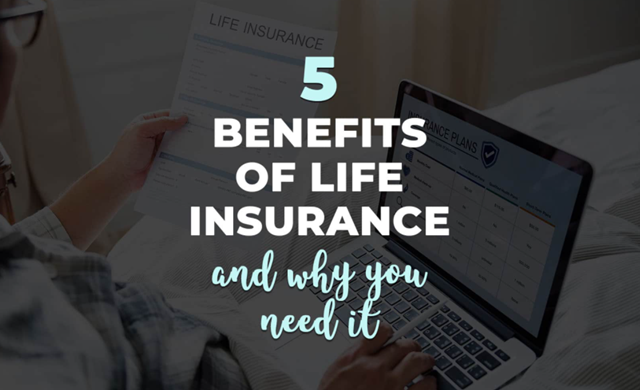Most people understand the primary benefits of having life insurance, your family gets money if you die unexpectedly – and you get the reassurance of knowing they’ll have resources to help carry on without you. While those benefits are generally true for all kinds of life insurance, there are other important advantages depending on the specific type of policy and amount of coverage you get. Well keep reading to know more.

One reason is that people assume life insurance is too expensive. For example, when asked to estimate the cost of a $250,000 term life policy for a healthy 30-year-old, the majority of survey respondents guessed $1000 per year or more. In actuality, the average cost is closer to $160 a year.
Top Benefits Of Having Life Insurance
1. Life Insurance Payouts Are Tax-Free
If you have a life insurance policy and die while your coverage is in effect, your beneficiaries will receive a lump sum death benefit. Life insurance payouts aren’t considered income for tax purposes, and your beneficiaries don’t have to report the money when they file their tax returns
2. Your Dependents Won’t Have to Worry About Living Expenses
Many experts recommend having life insurance that’s equal to seven to 10 times your annual income. If you have a policy (or policies) of that size, the people who depend on your income shouldn’t have to worry about their living expenses or other major costs. For example, your insurance policy could cover the cost of your children’s college education, and they won’t need to take out student loans.
3. Life Insurance Can Cover Final Expenses
The national median cost of a funeral that included a viewing and a burial was $7,848 as of 2021. Because many Americans do not have enough savings to cover even a $400 emergency expense, having to pay for a funeral can be a substantial financial burden. If you have a life insurance policy, your beneficiaries can use the money to pay for your burial expenses without having to dip into their own savings or use credit.
Some insurers offer final expense policies. These policies have low coverage amounts and relatively inexpensive monthly premiums.
4. You Can Get Coverage for Chronic and Terminal Illnesses
Many life insurance companies offer endorsements, also known as riders, that you can add to your policy to enhance or adjust your coverage. An accelerated benefits rider allows you to access some or all of your death benefit under certain circumstances. Under some policies, for example, if you are diagnosed with a terminal illness and are expected to live less than 12 months, you can use your death benefit while you’re still living to pay for your care or other expenses.
5. Policies Can Supplement Your Retirement Savings
If you purchase a whole, universal, or variable life insurance policy, it can accumulate cash value in addition to providing death benefits. As the cash value builds up over time, you can use it to cover expenses, such as buying a car or making a down payment on a home. You can also tap into it if you need to during your retirement years.6
However, a life insurance policy should not replace traditional retirement accounts like a 401(k) or an IRA. What’s more, cash value life insurance is considerably more expensive than term life insurance, which has no savings component but simply a death benefit.
In Summary
Life insurance isn’t just for the wealthy. No matter your income level, life insurance can ensure that your loved ones could make ends meet if you were to pass away. And, life insurance might be more affordable than you think. If you decide to get coverage